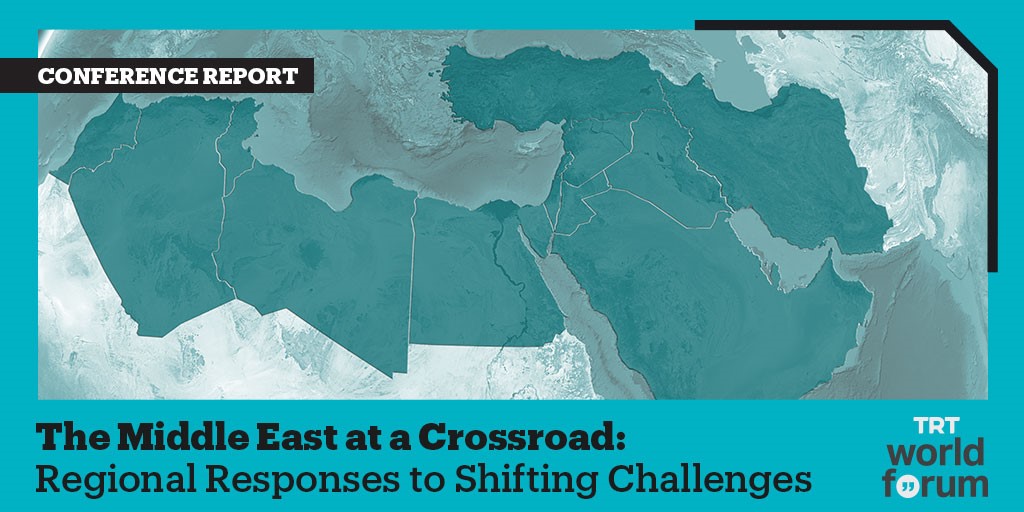The panel “The Middle East at a Crossroad: Regional Responses to Shifting Challenges” focused on a variety of issues ranging from domestic issues facing countries in the region to the implications of the shifting rivalries among different actors in the region.
Elaborating on the situation in Tunisia, Rached Ghannouchi pointed to achievements in the country from holding successful elections to the establishment of coalition governments following the revolution. While acknowledging the challenges, he emphasized the need for improvement in Tunisia’s economic situation.
Mustafa Abushagur stated that as long as regional and international actors with conflicting interests will continue to meddle in Libya, the prospects of finding any permanent solution to the ongoing war is going to be difficult. He also added that the transitional period in the country must be handled differently, particularly by re-establishing the existing institutions.
Cevdet Yılmaz stressed that Turkey is one of the main countries that has been affected by the ongoing war in Syria, emphasizing that Turkey’s interests are best protected via a stable and united Syria. He stated that Turkey works with regional and international partners to ensure this.
Maha Azzam emphasized the crisis that the Egyptian military regime is facing. Addressing the dire economic situation, she said while people no longer believe that the military serves their interest, they are also breaking the barrier of fear and standing up against the regime.
Professor Burhanettin Duran also focused on Turkey’s role in Syria. He stated that the war in the neighbouring country has created multiple challenges for Turkey especially in terms of security. He added that Turkey’s military operations against terrorist groups such as Daesh and PKK/YPG are not only to secure its territorial borders but are also an effort to establish a safe zone to create a solution to the refugee problem.
Resul Serdar Ataş discussed the role of media in the Middle East. Highlighting the problems in this regard, he pointed out two issues being the lack of accountability and absence of in-depth knowledge about the region. He further said media can be a constructive force in creating inclusive democratic governments as many countries in the region are going through detrimental changes.
Finally, Salman Shaikh dwelled on the role of the United States in the Middle East. While he suggested that America’s role in the region is coming to an end, he stated that this situation is going to lead to a reorganization of the alliances between different countries.
